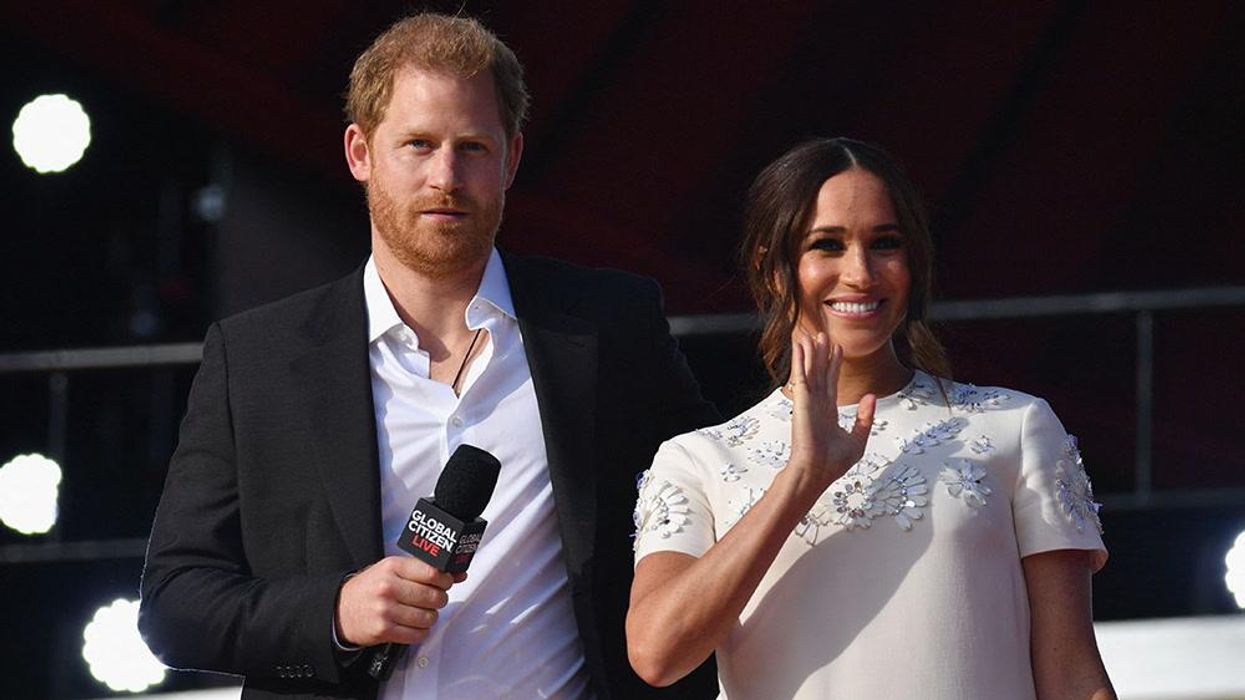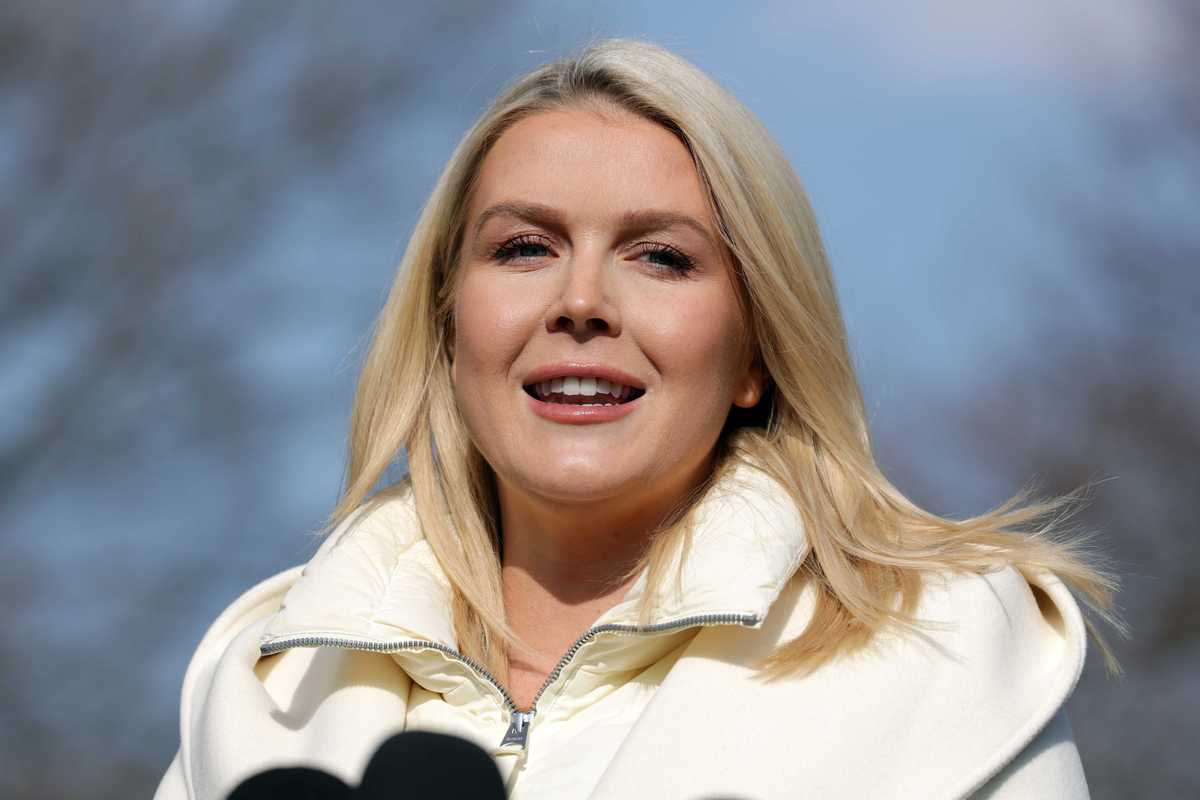Ellie Abraham
Nov 03, 2022
Meghan Markle says being mum in public eye can come with ‘crushing …
Bang Showbiz
Meghan Markle has revealed that both she and her husband Prince Harry have struggled with the questions on the British Citizenship exam, with the star revealing that it was “so hard”, even Harry couldn’t help her study.
The £50 test, known as the Life in the UK Test is part of a person’s application to get British citizenship or settlement in the UK.
Entrants get 45 minutes to answer a series of 24 multiple-choice questions about British traditions and customs and must correctly answer 75 per cent or more to pass.
Speaking about the test on her Archetypes podcast, The Duchess of Sussex said: “That citizenship exam is so hard. I was studying for it and I remember asking my husband, 'did you know this?', and he went, 'oh, I had no idea'.”
Sign up to our new free Indy100 weekly newsletter
But it turns out Prince Harry is far from the only Brit to struggle with the test, as in 2012, then Prime Minster David Cameron failed a mock of the test during a TV appearance on the Late Show with David Letterman.
The questions focus on British history, customs, laws and politics, but clearly, even some born and raised in the country are left foxed by them.
Website Life in the UK Test gives people the opportunity the take a free mock test to see how they would fare.
Here is an example of the 24 questions you may face – see how you would get on.
1. Who were the first people to arrive in Britain in what we call the Stone Age?
A - Farmers
B - Hunter-gatherers
C - Warriors
D - Pirates
2. When did Britain become permanently separated from the continent by the Channel?
A - 10,000 years ago
B - 50,000 years ago
C - 15,000 years ago
D - 18,000 years ago
3. The Commonwealth has no power over its members and it cannot suspend their membership:
A - True
B - False
4. Which of the following statements regarding the Black Death is NOT true?
A - One third of the population of England died and a similar proportion in Scotland and Wales
B - It was one of the worst disasters ever to strike Britain
C - It affected children and old people only
D - Following the Black Death, there were labour shortages
5. Who was reigning in England when Wales became formally united with England by the Act for the Government of Wales?
A - Henry VIII
B - Henry VII
C - Elizabeth I
D - James I
6. The Elizabethan period is known for the richness of its poetry and drama, especially for the plays and poems of which playwright?
A - Alexander Dumas
B - William Shakespeare
C - Charles Dickens
D - Thomas Hardy
7. Which of the following is NOT a fundamental principle of British life?
A - Tolerance of those with different faiths and beliefs
B - The rule of law
C - Autocracy
D - Democracy
8. Which TWO of the following are environmental charities?
A - Crisis
B - The National Trust
C - Friends of the Earth
D - PDSA
9. Which flag has a diagonal red cross on a white ground?
A - The cross of St George, patron saint of England
B - The cross of St Patrick, patron saint of Ireland
C - The cross of St David, patron saint of Wales
D - The cross of St Andrew, patron saint of Scotland
10. Where is the city of Swansea located?
A - In England
B - In Scotland
C - In Wales
D - In the Isle of Man
11. When is Christmas Eve celebrated?
A - 24th of December
B - 26th of December
C - 25th of December
D - 27th of December
12. Which British sportsman won five consecutive gold medals at the Olympic Games in the rowing category?
A - Sir Chris Hoy
B - Christopher Dean
C - Bradley Wiggins
D - Sir Steve Redgrave
13. What is the name of the centrepiece to the Remembrance Day service located in Whitehall, London?
A - Cenotaph
B - Stonehenge
C - Grimsby
D - Scunthorpe
14. Who was the inventor of the World Wide Web?
A - Sir Tim Berners-Lee
B - Sir Peter Mansfield
C - Sir Ian Wilmut
D - Sir Bernard Lovell
15. What does the UK offer to its residents or citizens (choose FIVE answers)?
A - Freedom of belief and religion
B - Freedom of speech
C - Free university tuition fees
D - Freedom from unfair discrimination
E - A right to a fair trial
F - A right to join in the election of a government
16. When did the Wars of the Roses start?
A - 1388
B - 1455
C - 1462
D - 1478
17. How many members does the Scottish Parliament have?
A - 60
B - 90
C - 120
D - 129
18. What does the term ‘coalition’ refer to?
A - If no political party wins a majority, a new election is held to vote for one of the top two parties only
B - The candidate who gets the most votes is elected
C - If no political party wins a majority, two parties may join and govern together
D - If an MP dies or resigns, there will be a fresh election
19. The public can listen to debates in the Palace of Westminster from public galleries in both the House of Commons and the House of Lords.
A - True
B - False
20. Pool and darts are traditional pub games.
A - True
B - False
21. When did the UK formally leave the European Union?
A - 31 January 2019
B - 30 January 2020
C - 31 January 2020
D - 30 January 2019
22. What is the minimum age requirement in the UK to drink wine or beer with a meal provided you are with someone over 18?
A - 14 years old
B - 15 years old
C - 16 years old
D - 17 years old
23. Who is the spiritual leader of the Church of England?
A - The Pope
B - The Archbishop of Canterbury
C - St Augustine
D - St Columba
24. Civil servants cannot stand for public office.
A - True
B - False
Correct answers
1 - B
2 - A
3 - B
4 - C
5 - A
6 - B
7 - C
8 - B and C
9 - B
10 - C
11- A
12 - D
13 - A
14 - A
15 - A, B, D, E, F
16 - B
17 - D
18 - C
19 - A
20 - A
21 - C
22 - C
23 - B
24 - A
Have your say in our news democracy. Click the upvote icon at the top of the page to help raise this article through the indy100 rankings.
Top 100
The Conversation (0)














